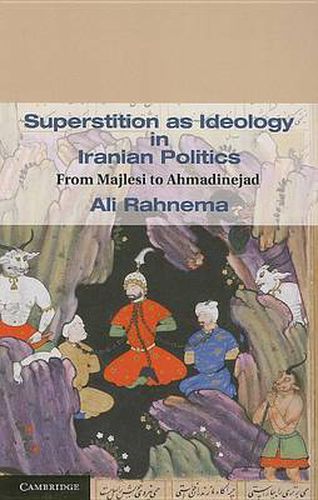Readings Newsletter
Become a Readings Member to make your shopping experience even easier.
Sign in or sign up for free!
You’re not far away from qualifying for FREE standard shipping within Australia
You’ve qualified for FREE standard shipping within Australia
The cart is loading…






A superstitious reading of the world based on religion may be harmless at a private level, yet employed as a political tool it can have more sinister implications. As this fascinating book by Ali Rahnema, a distinguished Iranian intellectual, relates, superstition and mystical beliefs have endured and influenced ideology and political strategy in Iran from the founding of the Safavid dynasty in the sixteenth century to the present day. As Rahnema demonstrates through a close reading of the Persian sources and with examples from contemporary Iranian politics, it is this supposed connectedness to the hidden world that has allowed leaders such as Muhammad Reza Shah Pahlavi and Mahmud Ahmadinejad to present themselves and their entourage as representatives of the divine, and their rivals as the embodiment of evil.
$9.00 standard shipping within Australia
FREE standard shipping within Australia for orders over $100.00
Express & International shipping calculated at checkout
A superstitious reading of the world based on religion may be harmless at a private level, yet employed as a political tool it can have more sinister implications. As this fascinating book by Ali Rahnema, a distinguished Iranian intellectual, relates, superstition and mystical beliefs have endured and influenced ideology and political strategy in Iran from the founding of the Safavid dynasty in the sixteenth century to the present day. As Rahnema demonstrates through a close reading of the Persian sources and with examples from contemporary Iranian politics, it is this supposed connectedness to the hidden world that has allowed leaders such as Muhammad Reza Shah Pahlavi and Mahmud Ahmadinejad to present themselves and their entourage as representatives of the divine, and their rivals as the embodiment of evil.